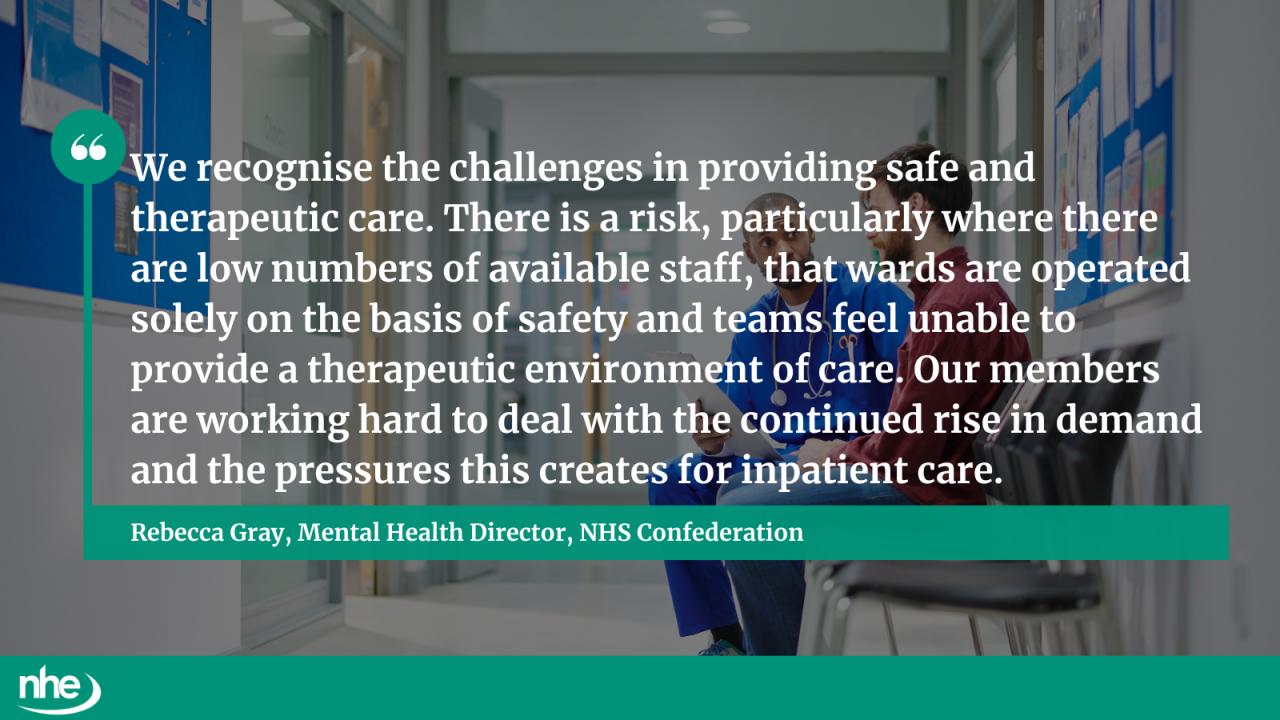A newly published report reveals that critical recommendations to improve mental health inpatient services are frequently left unimplemented, resulting in missed opportunities to enhance care, prevent harm, and support NHS staff.
The findings highlight systemic failures across multiple areas, including patient safety, staffing, digital integration, and suicide risk assessment.
The report, which synthesizes investigations from September 2024 to January 2025, identifies key risks that continue to affect the safety and quality of mental health inpatient services.
Among the most pressing concerns are:
- Safety Learning & Culture – A fear of blame prevents staff from openly discussing safety incidents, fostering a defensive culture rather than a learning environment.
- System Integration & Accountability – Poor coordination between health and social care services leads to fragmented care and unclear accountability negatively impacting patient outcomes.
- Physical Health of Patients – Individuals with severe mental illness face inconsistent health checks, inadequate emergency responses, and misdiagnosed physical symptoms.
- Suicide Risk Assessment – The language used in assessments can minimize patient experiences, creating fear and discouraging open communication.
- Staffing & Resources – Understaffing and resource constraints in inpatient and community settings hinder the ability to provide safe and therapeutic care.
- Digital Support – A lack of interoperability between digital systems disrupts care coordination across mental health, acute, and community providers.
A central concern highlighted in the report is that recommendations for improvement often fail to translate into action. Key reasons include:
- Lack of impact assessments to measure effectiveness.
- No clearly identified body responsible for implementation.
- Duplication of recommendations across different organizations, leading to confusion and inaction.
Craig Handley, Senior Safety Investigator at the Health Services Safety Investigations Body, said:
“This report shines a light once again on the urgent and ongoing issues facing mental health inpatient care and the reoccurring harm that comes with those issues. Too often, we see well-intentioned recommendations fall through the cracks—not because people don't care, but because systems don’t always support change in a meaningful or sustained way.
“Ensuring patient safety in mental health services means understanding what can be realistically delivered within the pressures of day-to-day care, and aligning that with clear priorities, accountability, and follow-through. Our findings call for a more joined-up approach to improvement to ensure that mental health services are safe, effective, and patient-centred.”
In response to these findings, the report makes a direct recommendation to the Secretary of State for Health and Social Care to oversee the development of a national strategy that clearly defines patient safety responsibilities and accountabilities within integrated care systems.
This strategy must address systemic failures ensure recommendations lead to tangible improvements, and create a culture of learning rather than blame.
The report underscores the urgent need for action to address longstanding failures in mental health inpatient care. Without clear accountability, improved integration, and a shift towards a learning culture, patients and NHS staff will continue to face avoidable harm.
In response to the report, Rebecca Gray, mental health director at the NHS Confederation commented:
“This report sets out a number of important lessons that will resonate with most of those running or working in mental health services.
“Providing care to those who become severely mentally unwell is about balancing a range of risks within a system that has limited resources and ensuring that the individual, their needs and safety are not lost sight of in that effort.
“We recognise the challenges in providing safe and therapeutic care. There is a risk, particularly where there are low numbers of available staff, that wards are operated solely on the basis of safety and teams feel unable to provide a therapeutic environment of care. Our members are working hard to deal with the continued rise in demand and the pressures this creates for inpatient care.
“The mental health sector – like the rest of the NHS – has long been starved of capital investment. That is why we are calling for the government to use the upcoming Spending Review to increase capital investment and open up much needed new routes for mutual investment from the private sector.
“One of the main aims of the Mental Health Bill – currently passing through Parliament – is to provide more therapeutic care, with the ‘Culture of Care’ and inpatient quality improvement programmes already beginning to address these issues. We look forward to working with the government and our members to implement the reforms more widely.”

Image credit: iStock



















